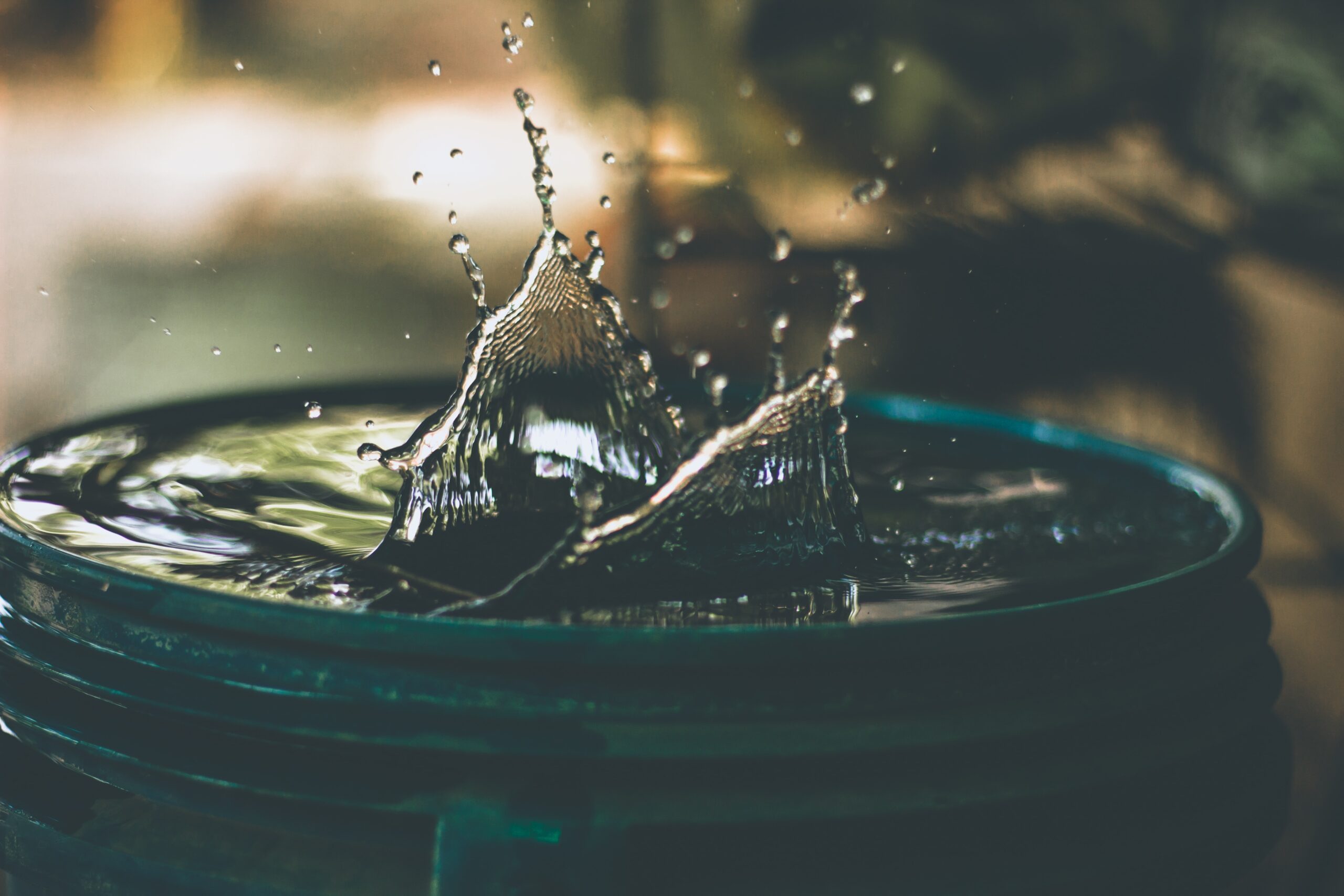If you rely on well water for your household needs, ensuring its safety and quality is of utmost importance. One potential contaminant that can pose a threat to your well water is dimethyl sulfate. This chemical compound is commonly used in various industrial processes and can find its way into underground water sources, like wells. However, fear not! In this article, we will explore effective measures you can take to prevent dimethyl sulfate contamination in your well water, so you can enjoy clean and safe drinking water for you and your loved ones.
Understanding Dimethyl Sulfate Contamination
What is Dimethyl Sulfate?
Dimethyl sulfate is a colorless, oily liquid that is commonly used in various industrial processes, such as the production of dyes, pharmaceuticals, and pesticides. It is also used as a laboratory reagent. Dimethyl sulfate is toxic and poses significant health risks when it contaminates water sources. It can easily dissolve in water and may contaminate groundwater and well water supplies.
Sources of Dimethyl Sulfate Contamination
Dimethyl sulfate contamination can occur from different sources, including industrial activities, agricultural practices, and improper disposal of chemicals. Industries that use or produce dimethyl sulfate can release it into the environment through accidental spills or improper waste disposal. Similarly, agricultural activities that involve the use of pesticides and fertilizers containing dimethyl sulfate can contribute to contamination if not used responsibly. Additionally, poorly constructed or maintained wells can be vulnerable to contamination from nearby industrial sites or agricultural runoff.
Health Risks Associated with Dimethyl Sulfate Contamination
Exposure to dimethyl sulfate-contaminated water can have severe health consequences. Short-term exposure to high concentrations can cause irritation of the skin, eyes, and respiratory system. Prolonged exposure or ingestion of dimethyl sulfate can lead to more serious health issues, such as damage to the liver, kidneys, and nervous system. It is crucial to take preventive measures to avoid the contamination of well water with dimethyl sulfate to safeguard your health and the well-being of your community.
Testing and Monitoring Well Water
Regular Water Testing
Regular water testing is an essential practice to ensure the safety of your well water. It allows you to identify any potential contaminants, including dimethyl sulfate, and take appropriate actions to mitigate the risks. Water testing should be conducted at least once a year, or more frequently if you suspect any contamination sources nearby or experience changes in water quality. A certified laboratory can analyze the samples and provide accurate results.
Specific Dimethyl Sulfate Testing
While regular water testing is essential, specific testing for dimethyl sulfate contamination can provide more detailed information about the presence and concentration of this particular chemical. This type of testing requires specialized equipment and methods, and it is recommended to consult with experts or environmental agencies to ensure reliable results. They can guide you on the appropriate sample collection and testing procedures specific to dimethyl sulfate.
Monitoring Well Water Quality
In addition to periodic testing, it is crucial to monitor the overall quality of your well water. Be attentive to any changes in color, odor, or taste, as these can indicate potential contamination. Additionally, keep track of any nearby industrial or agricultural activities that may pose a risk of dimethyl sulfate contamination. Regular monitoring will enable you to take prompt action if any signs of contamination are detected.

Preventing Dimethyl Sulfate Contamination
Proper Well Construction
Proper well construction is the first line of defense against dimethyl sulfate contamination. Ensure that your well is constructed by licensed professionals, adhering to the local regulations and industry standards. Proper sealing, casing, and grouting of the well will help prevent the intrusion of contaminants, including dimethyl sulfate, from surrounding sources. Regular inspections and maintenance of the well structure are also crucial to identify and address any potential vulnerabilities.
Maintaining a Safe Distance from Potential Contaminant Sources
When siting a well, it is essential to consider potential sources of contamination, such as industrial facilities and agricultural activities that use or produce dimethyl sulfate. Maintain a safe distance between your well and these potential sources to minimize the risk of contamination. Consult with experts or relevant authorities to determine the appropriate setback distances for your specific location and potential contaminants.
Handling and Disposing of Chemicals Properly
Proper handling and disposal of chemicals, including dimethyl sulfate, are essential to prevent contamination. Follow all safety guidelines and regulations when working with chemicals. Store them in appropriate containers and ensure that they are properly labeled. When disposing of chemicals, do not pour them down the drain or into the ground. Instead, consult with local authorities or environmental agencies to identify approved disposal methods. By responsibly managing chemicals, you can minimize the risk of contamination to your well water.
Implementing Protective Buffer Zones
Creating protective buffer zones around your well can act as a barrier against potential sources of dimethyl sulfate contamination. Establishing vegetative buffers or installing physical barriers can help filter and absorb contaminants before they reach your well. Consult with experts or local organizations specializing in well protection to determine the most effective buffer zone strategies for your specific circumstances.
Using Alternative Chemicals and Methods
Consider using alternative chemicals and methods that do not contain or produce dimethyl sulfate. Opt for eco-friendly pesticides, fertilizers, and cleaning products that are certified as safe for the environment and human health. By choosing sustainable alternatives, you can reduce the potential risks of dimethyl sulfate contamination and contribute to a safer and healthier water supply.
Education and Awareness
Education and awareness about the risks of dimethyl sulfate contamination are crucial in preventing its occurrence. Stay informed about the potential sources and health effects of dimethyl sulfate. Participate in workshops, community events, or online resources that provide information on well water protection and contamination prevention. Share your knowledge with neighbors, friends, and family to promote responsible practices and ensure a collective effort in safeguarding water resources.
Protective Measures for Well Users
Installing and Maintaining Well Water Treatment Systems
Installing well water treatment systems can provide an additional layer of protection against dimethyl sulfate contamination. Different treatment methods, such as activated carbon filtration, reverse osmosis, or ultraviolet disinfection, can effectively remove dimethyl sulfate and other contaminants from your water supply. Consult with water treatment professionals to determine the most suitable system for your well and ensure regular maintenance to uphold its efficiency.
Regular System Maintenance and Servicing
Regular maintenance and servicing of well water treatment systems are essential to ensure their optimal performance. Follow the manufacturer’s guidelines for routine maintenance tasks, such as filter replacement, disinfection, and system check-ups. Promptly address any issues or malfunctions to prevent the risk of recontamination. Regular servicing will help prolong the lifespan of your system and maintain the quality of your well water.
Proper Well Water Disinfection
Proper well water disinfection is crucial to eliminate harmful bacteria and viruses that may coexist with dimethyl sulfate contamination. Chlorination or alternative disinfection methods, such as ultraviolet (UV) treatment, can effectively sanitize your well water. Consult with water treatment professionals or environmental agencies to determine the most appropriate disinfection methods specific to your well water characteristics and the potential presence of dimethyl sulfate.
Implementing Personal Safety Measures
Personal safety measures are essential to minimize direct exposure to dimethyl sulfate-contaminated water. Use gloves and protective clothing when handling or working near potentially contaminated water sources. Avoid direct ingestion of contaminated water and wash hands thoroughly after coming into contact with the water. By implementing these simple yet effective measures, you can reduce the potential health risks associated with dimethyl sulfate contamination.

Emergency Response to Contamination
Recognizing Contamination Signs
Being able to recognize signs of dimethyl sulfate contamination in your well water is crucial for taking immediate action. Look out for changes in water color, odor, or taste, as well as any visible sediments or particles. If you notice a sudden decline in water quality, it is essential to consider the possibility of contamination and take appropriate measures to protect your well water.
Immediate Steps to Protect Well Water
If you suspect dimethyl sulfate contamination in your well water, there are immediate steps you can take to protect your water supply. Avoid using the water for drinking, cooking, or any other household purposes until it has been tested and deemed safe. Consider using alternate water sources or bottled water until the issue is resolved. It is crucial to act swiftly to prevent further contamination and potential health risks.
Contacting Relevant Authorities
In case of contamination, it is important to contact relevant authorities, such as local health departments or environmental agencies. They can provide guidance, support, and resources to help address the issue effectively. Reporting the contamination incident will also contribute to data collection and enable the authorities to take appropriate actions to prevent future occurrences and protect the community’s well-being.
Community Involvement and Collaboration
Establishing Water Protection Programs
Community involvement is key to preventing dimethyl sulfate contamination and safeguarding well water. Establishing water protection programs allows community members to come together, share knowledge, and collectively address potential contamination risks. These programs can include educational workshops, awareness campaigns, and collaborative efforts to monitor and protect well water sources. By actively engaging in water protection programs, communities can establish a strong foundation for water safety.
Participating in Local Initiatives
Participating in local initiatives related to water protection and conservation can complement individual efforts. Collaborate with local conservation groups, schools, or community organizations to organize cleanup drives, tree planting initiatives, or awareness campaigns. By joining forces with like-minded individuals, you can amplify the impact of your actions and contribute to a healthier environment for all.
Sharing Best Practices and Insights
Sharing best practices and insights among community members is instrumental in preventing dimethyl sulfate contamination. Regularly engage in discussions and knowledge-sharing platforms where experiences and successful strategies can be exchanged. By learning from each other’s successes and challenges, communities can continuously refine their practices, enhance their preventive measures, and create a shared repository of valuable information for future reference.

Legislation and Regulations
Understanding Local Laws and Regulations
Understanding the local laws and regulations pertaining to water quality and contamination is essential for preventing dimethyl sulfate contamination. Familiarize yourself with the legal requirements regarding well construction, chemical usage, and disposal. Stay updated on any amendments or additions to ensure compliance with relevant regulations. It is crucial to be aware of your rights and responsibilities as a well owner to protect your water supply effectively.
Advocating for Strong Water Protection Policies
Active advocacy for strong water protection policies can have a lasting impact on preventing dimethyl sulfate contamination. Engage with local authorities and policymakers to voice your concerns and support the development and enforcement of robust regulations. Participate in public hearings or consultations related to water protection to ensure that your well-being and the integrity of your water supply are prioritized.
Supporting Enforcement Efforts
Supporting the enforcement efforts of local authorities and regulatory agencies is vital in preventing dimethyl sulfate contamination. Report any suspected violations or non-compliance with water protection regulations to the relevant authorities. Providing accurate information and evidence can assist in enforcing applicable laws and preventing the unauthorized use or discharge of dimethyl sulfate or other contaminants.
Professional Guidance and Support
Consulting with Water Quality Experts
Consulting with water quality experts can provide valuable guidance and advice to prevent dimethyl sulfate contamination. Experts can assess your specific well location and provide recommendations tailored to your circumstances. They can assist in designing appropriate water monitoring strategies, identifying potential sources of contamination, and implementing effective preventive measures. Seeking professional guidance ensures that you have access to the most accurate and up-to-date information for protecting your well water.
Seeking Assistance from Environmental Agencies
Local environmental agencies or organizations dedicated to water protection can offer support and assistance in preventing dimethyl sulfate contamination. They can provide educational resources, conduct outreach programs, and facilitate water testing and monitoring initiatives. Seek their guidance in case of emergencies, such as suspected contamination incidents, to ensure prompt and effective response measures.

Regular Maintenance and Inspections
Well Inspection and Upkeep
Regular well inspections and upkeep are crucial for maintaining the integrity of your well and preventing dimethyl sulfate contamination. Schedule annual inspections with licensed professionals who can assess the condition of your well, including its construction, casing, and sealing. Address any identified issues promptly to avoid potential vulnerabilities that could lead to contamination. Regular upkeep ensures that your well remains in optimal working condition and minimizes the risk of contamination.
Testing Plumbing Systems
Apart from well inspections, it is also important to periodically test your plumbing systems for potential leaks or failures. Damaged or faulty plumbing can introduce contaminants, including dimethyl sulfate, into your well water. Conduct routine checks of faucets, pipes, and fixtures to identify any signs of leaks or deterioration. Timely repairs and maintenance will help prevent contamination and ensure the overall quality of your well water.
Monitoring and Addressing Environmental Changes
Be mindful of any environmental changes that might impact the quality of your well water. Factors such as nearby construction, changes in land use patterns, or natural events like floods or heavy rainfall can increase the risk of dimethyl sulfate contamination. Stay informed about these changes and be proactive in monitoring your well water quality during such events. Take appropriate measures, such as additional testing or implementing protective measures, to mitigate the potential risks.
Promoting Sustainable Practices
Conserving Water Resources
Conserving water resources is not only crucial for the environment but also helps prevent dimethyl sulfate contamination. Implement water conservation practices, such as fixing leaks, using water-efficient appliances, and practicing responsible irrigation. Minimizing water usage reduces the need for excessive pumping, which can potentially draw contaminants into your well. By conserving water, you contribute to the overall well-being of your well water supply.
Reducing Chemical Usage
Reducing chemical usage is an effective strategy to prevent dimethyl sulfate contamination. Opt for environmentally friendly alternatives to chemical-based cleaning products, pesticides, and fertilizers. By minimizing the introduction of these substances into the environment, you reduce the potential for contamination. Explore organic or natural alternatives that are safe for both the environment and your well water supply.
Encouraging Eco-friendly Agriculture and Industry
Supporting eco-friendly agriculture and industry practices can play a significant role in preventing dimethyl sulfate contamination. Choose locally sourced produce and products that are produced using sustainable and responsible methods. By supporting environmentally conscious agriculture and industry, you contribute to a safer, cleaner, and healthier water supply for everyone. Advocate for eco-friendly practices within your community and encourage businesses to adopt sustainable measures.
In conclusion, preventing dimethyl sulfate contamination in well water is essential for safeguarding the health of individuals and communities. Understanding the sources of contamination, implementing preventive measures, and actively participating in monitoring and testing initiatives are crucial steps. By promoting sustainable practices, advocating for strong water protection policies, and seeking professional guidance, individuals and communities can work together to ensure the availability of clean and safe well water for generations to come.


